MEXICAN-AMERICAN TENOR WINS THE 3rd ÉVA MARTON INTERNATIONAL SINGING COMPETITION
Galeano Salas collected the 15.000€ Grand Prix of the 3rd Éva Marton International Singing Competition organised by the Liszt Academy. The 12.000€ 1st prize was taken by the Mongolian baritone, Badral Chulunbaatar, while the Hungarian soprano Zsuzsanna Ádám was handed over the 2nd prize in the value of 9000€. The third prize went to the Russian soprano Iuliia Muzychenko.
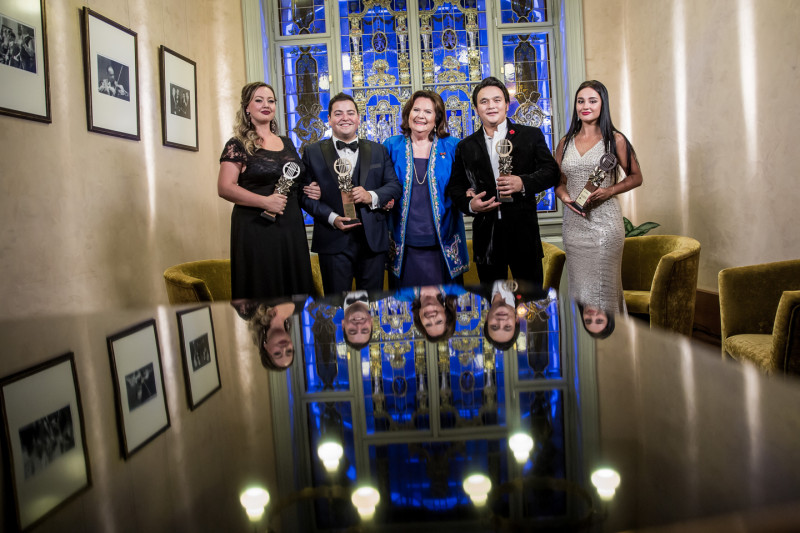
As Éva Marton, eponym of the competition, declared following the gala concert: „I can state with confidence that the standard of the 3rd Éva Marton International Singing Competition was absolutely outstanding, surpassing the international average by far, on this point all the nine members of the jury unanimously agreed.” She added that „Not only regarding the number of applicants did we clearly make a grand step forward but also regarding the quality of singing voices. I believe that in collaboration with the Liszt Academy, we set a cornerstone that can be built upon in the future; it is perhaps no accident that the Final and the gala fell on the Cultural Heritage Days.”
Imre Szabó Stein, Senior Advisor of Communications and Development of the competition, who has been in charge of shaping the image of the contest right from very beginning of the planning phase of the 1st Éva Marton International Competition held in 2014, pointed out that „Having held the third contest, we can claim with absolute certainty that the Marton Competition is in the vanguard of the world’s opera contests. Indeed, only the greatest competitions can be open to the world to such extent. By this, I don’t only mean the large and colourful field that exceeds the previous contests – encompassing contestants from all over the world from four continents and 145 countries ranging from Peru to Japan, from South Africa to Finland, but also the fact that the Liszt Academy streamed all three rounds live online in highest quality, making the performances accessible all around the globe.” He made the further comment that „I am proud of my somewhat unusual idea that the Grand Prix should be announced and presented only at the gala, aired also by MTVA M5, without anyone – except for the jurors – knowing the final results. Thus, uniquely in the history of music contests, the gala was full of excitement, tension and had a high stake.”
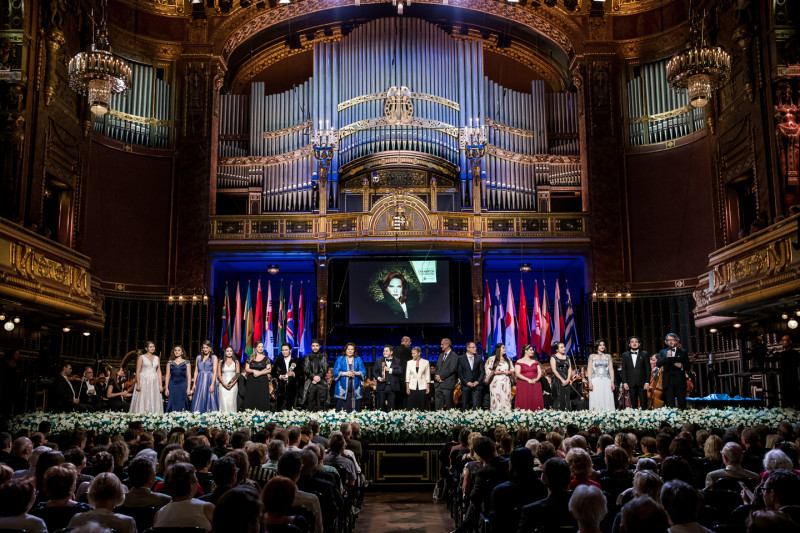
The 3rd Éva Marton International Singing Competition began on 10 September with the participation of sixty-one contestants, which was higher than ever before. The Preliminary round was held between Monday and Wednesday night, while on Thursday, twenty-three young singers were competing against each other in the Semi-final. Nine ladies (four sopranos and three mezzo-sopranos) and four gentlemen (three baritones and a tenor) made it to the Final round, which took place on 15 September. The finalist proved themselves by singing two arias each in the Grand Hall of the Liszt Academy accompanied by the Hungarian State Opera Orchestra conducted by Balázs Kocsár.
The international jury of the contest funded by the Hungarian government consisted of - besides Éva Marton herself - Anatoli Goussev, professor of La Scuola Musicale di Milano, the baritone Franz Grundheber, honorary member of the Hamburg and Vienna State Operas; professor of the Tbilisi State Conservatoire, tenor Teimuraz Gugushvili, Casting Director of the London Royal Opera, Peter Mario Katona, and one of the most significant opera managers in Europe, Miguel Lerín as well as Vittorio Terranova, Artistic Director of the Accademia del Belcanto and of the International Course of Lyric Singing Ferruccio Tagliavini,. The jury’s work was also assisted by the and two Hungarians, the Head of the Department of Vocal and Opera Studies, Andrea Meláth and the General Director of the Hungarian State Opera, Szilveszter Ókovács.
Following the Final, the jury announced the winners of the Audience prize, the two outstanding specials awards as well as of the third, second and first prizes, while the majority of special prizes and the Grand Prix for the absolute winner of the competition were presented by Éva Marton within the framework of the gala concert on Sunday night. She recalls the first appearance of the Grand Prix-winning Mexican-American tenor – who has just started his first season as an ensemble member of the Bavarian State Opera after stepping in last minute in a role - that: „Only rarely does it happen that the audience and the jurors unanimously pick out someone. Already when he sang Liszt’s Sonetto 104 del Petrarca in the Priliminary round, I seriously suspected that he was going to accomplish excellent results. It was an indescribable emotional experience: I had never heard this song interpreted like this, especially not by a foreign artist. After this, we naturally paid special attention to his other performances.” Besides the Grand Prix, the thirty year-old
Galeano Salas also won the Audience prize, but he also received invitations from the Bartók Plus Opera Festival, the Filharmonia Hungary, the Hungarian State Opera, the Miskolc National Theatre and the Óbuda Danubia Orchestra.
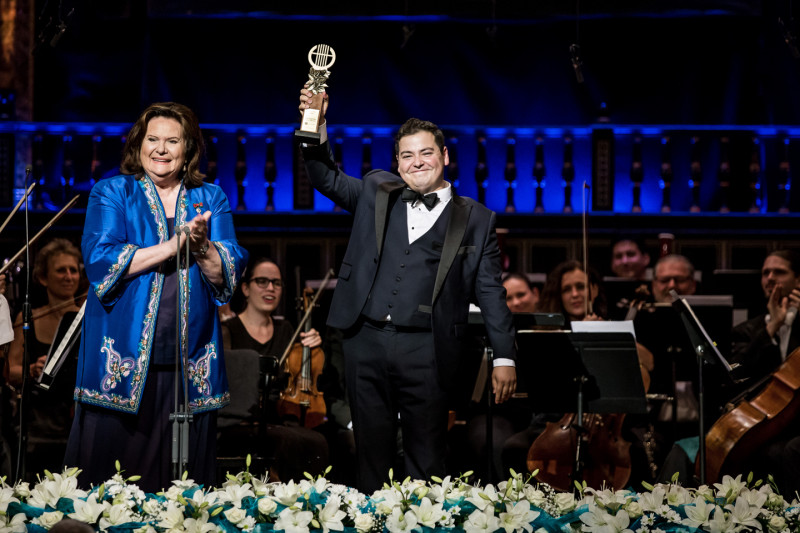
On the 1st prize-wining 29-year old Chulunbataar Badral, Éva Marton commented: „In my notes, I described him as a full-fledged artist; all he needs is roles and the stage. The young Mongolian performed better and better in each round, which is very rare, as by the end of a long competition like this, young people tend to become tired quite easily. He, however, continued to make a progress and convinced us all in the jury.” The Mongolian tenor also received the invitations of the Budapest Summer Festival and Vittorio Terranova.
The eponym of the competition evaluated the 2nd prize-winning Hungarian singer with the following words: „Zsuzsanna Ádám’s second prize came as a surprise when we summed up the jurors’ scores. We are talking about a singer who has the necessary temperament, and all the necessary gifts that determine the career of a performer who turns into a celebrity from one day to another. Her voice is full, yet she is capable of hitting high notes softly. The soprano – who was born in 1988 and conducted her music studies in Pécs, Szeged and the Liszt Academy in Budapest - won – besides the 2nd place – the special prize of Fidelio Media and the Papageno Consulting as well as the invitations of the Hungarian Radio Music Ensembles, the MÁV Symphony Orchestra and the Zugló Philharmony.
As the founder of the contest said: „Despite her tender age, Iuliia Muzychenko - placed third - selected an extraordinarily courageous repertoire for all three rounds, and in addition to her achievements in the Final, also her coloraturas in the Preliminary round made a deep impression on the jury. She will give great delight to the audience in the years to come, but I am convinced that he voice is still in a maturing process, and she will make herself a career as a lyric soprano.” The Russian soprano born in 1994 was asked to collaborate with the Hungarian State Opera and the Szolnok Symphony Orchestra besides her 3rd prize.
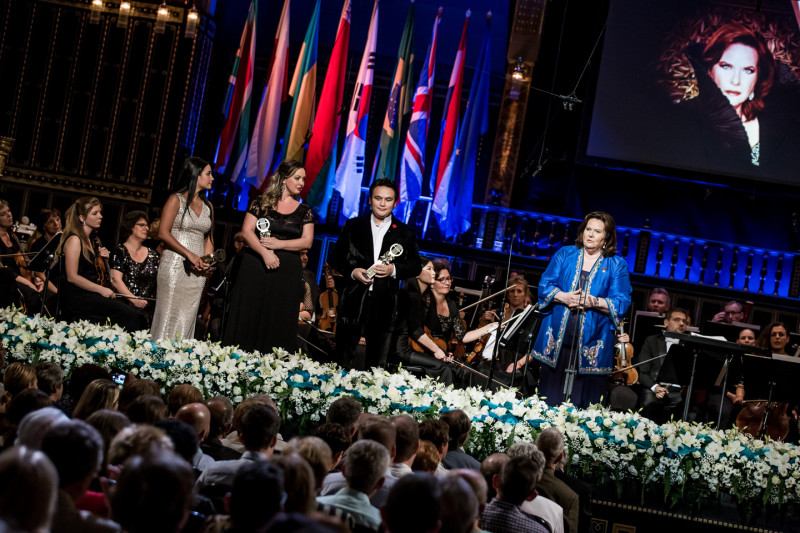
Several special prizes were distributed among the 13 finalists: Valentyna Pluzhnikova received Anatoli Goussev and the Bartók Plus Opera Festival's invitation, but Chen Yibao was also invited by the Bartók Plus Opera Festival. Rassul Zharmagambetov’s performance was requested by the Miskolc Symphony Orchestra and Müpa Budapest, while Anna Shapovalova was asked to cooperate with the Hungarian State Orchestra and Müpa Budapest. Ildikó Megyimórecz was granted the special prizes of the Hungarian Academy of Arts and the Papageno Consulting as well as the invitation of the Pécs National Theatre. Although the Ukrainian tenor Nasar Tatsyhyn did not make it to the Final, he was presented with the special prize of the Liszt Academy: Éva Marton’s three-week Turandot-masterclass in the value of 2.200€. The finalists Beatriz Baptista, Inna Fedorii, Ksenia Nikolaieva and Gagik Vardanyan collected the Liszt Academy’s gift package.
Ms Marton summed up her benefits of the contest with the following words: „The true awards of the competition are not the money-prizes, however, but the invitations and performance opportunities that enable the young singers to make progress, prove themselves in front of an audience and face new challenges. Hungary also benefits from the Éva Marton Singing Competition this way, as the Hungarian audience will have the chance to become familiar with a dozen young singers in the seasons to come thanks to the striking number of special awards. This is what really matters, and this is what pleases me most!”
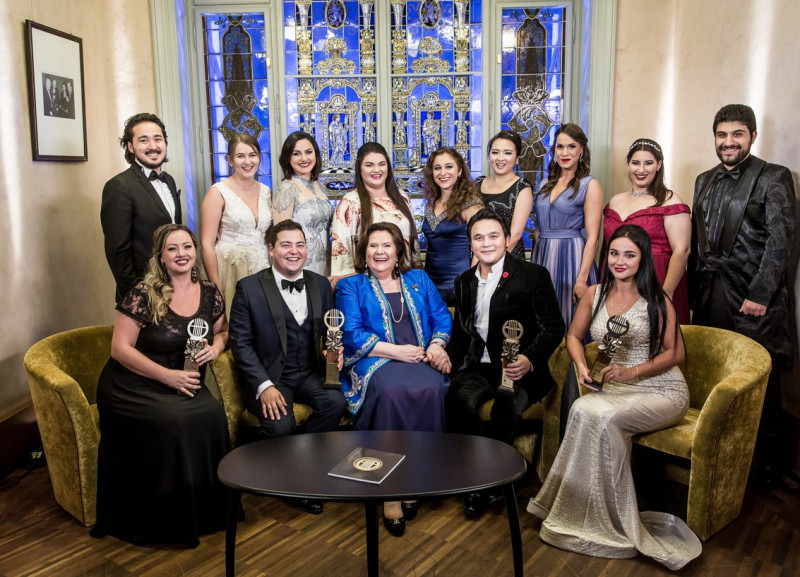
Photo galleries of the Gala and the previous rounds are published on the Competition's Facebook page. More multimedia material including photos and video recordings will follow soon.


